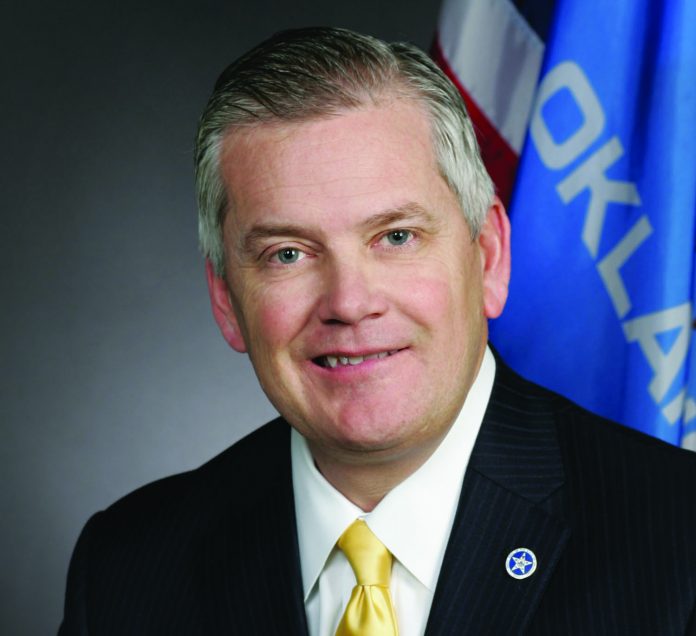by Mike Lee, Staff Writer
Seniors are one of the biggest targets when it comes to insurance scams.
That’s why Oklahoma Insurance Commissioner John Doak wants to arm Oklahoma’s senior population with the information necessary to fight back and make sure they don’t easily part with their hard-earned money.
The Oklahoma Insurance Department’s Medicare Assistance Program is hosting a series of free events to help seniors fight fraud.
The Senior Fraud Conferences are ongoing and will be held through July.
“Crooks target seniors because they think they’re an easy target,” Doak said. “The scams have gotten more sophisticated, with crooks using social media and the Internet to find out where you live, where you work and who you’re related to. “Once they have that information, it’s easier for them to steal your money.”
Remaining conferences will be held July 14 in Lawton, July 16 in Norman and July 22 in Poteau.
“Seniors are prime targets for crooks because they usually have a healthy bank account,” Doak said. “Thieves also think seniors may be vulnerable because of their age. But in many cases, these scammers are very good at what they do and anyone can fall victim to the scam, regardless of age. But if you know which red flags to look for, you can easily protect yourself from these types of crimes.”
Experts will provide fraud information relating to Medicare, home repair, telemarketing, identity theft, banking, prepaid funerals, current scams and more. Each conference is free for senior adults and includes breakfast. Insurance professionals who attend the event can earn four hours of ethics Continuing Education (CE) credit for $30.
Doak’s office has been very aggressive in fraud prevention, with the Anti-Fraud Unit actively investigating and pursuing charges.
Last year a Tulsa insurance agent defrauded a Muskogee couple out of nearly $300,000 after convincing the 80-year-old husband to withdraw the money from annuities and invest it in a bogus company.
That agent pleaded guilty to exploitation of the elderly.
Another former agent was sentenced to two years in prison for defrauding seniors at investment seminars across the state. He convinced them to cash in their life insurance and annuity products in exchange for gold. But instead of buying the gold, he took the money and fled to Florida.
“I am very proud of the work we have done and continue to do to protect Oklahoma consumers,” Doak said. “These events are designed to empower seniors by showing them the tricks of the trade used by crooks.”
According to the FBI, senior citizens especially should be aware of fraud schemes for the following reasons: * Senior citizens are most likely to have a “nest egg,” to own their home, and/or to have excellent credit—all of which make them attractive to con artists.
* People who grew up in the 1930s, 1940s, and 1950s were generally raised to be polite and trusting. Con artists exploit these traits, knowing that it is difficult or impossible for these individuals to say “no” or just hang up the telephone.
* Older Americans are less likely to report a fraud because they don’t know who to report it to, are too ashamed at having been scammed, or don’t know they have been scammed. Elderly victims may not report crimes, for example, because they are concerned that relatives may think the victims no longer have the mental capacity to take care of their own financial affairs.
* When an elderly victim does report the crime, they often make poor witnesses. Con artists know the effects of age on memory, and they are counting on elderly victims not being able to supply enough detailed information to investigators. In addition, the victims’ realization that they have been swindled may take weeks—or more likely, months—after contact with the fraudster. This extended time frame makes it even more difficult to remember details from the events.
* Senior citizens are more interested in and susceptible to products promising increased cognitive function, virility, physical conditioning, anti-cancer properties, and so on. In a country where new cures and vaccinations for old diseases have given every American hope for a long and fruitful life, it is not so unbelievable that the con artists’ products can do what they claim.
The Senior Fraud Conferences are funded, in part, by the Administration on Community Living’s Senior Medicare Patrol grant.
Seniors are asked to register online at map.oid.ok.gov or by calling 1-800-763-2828














